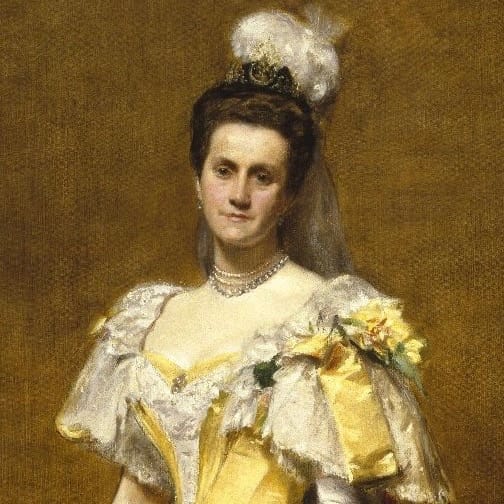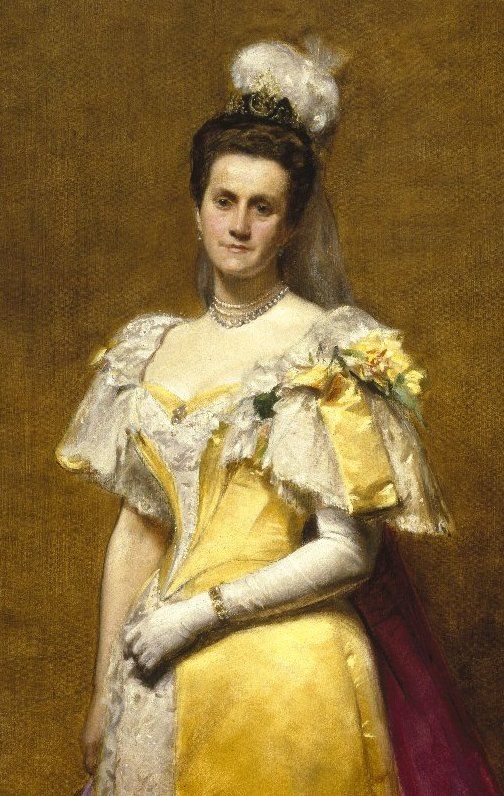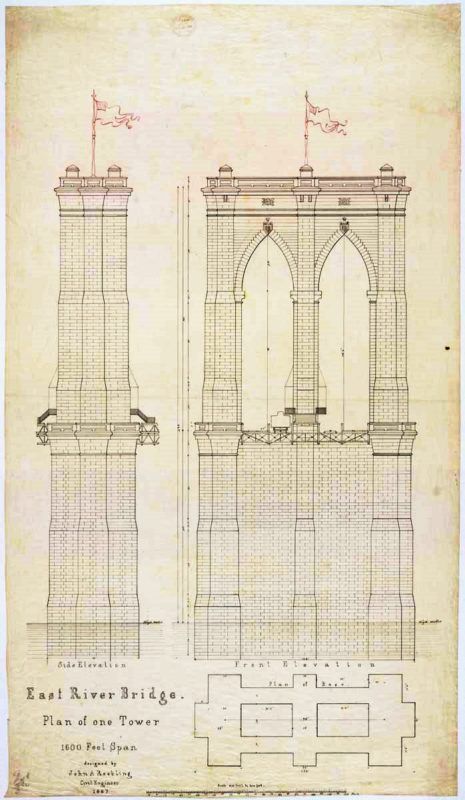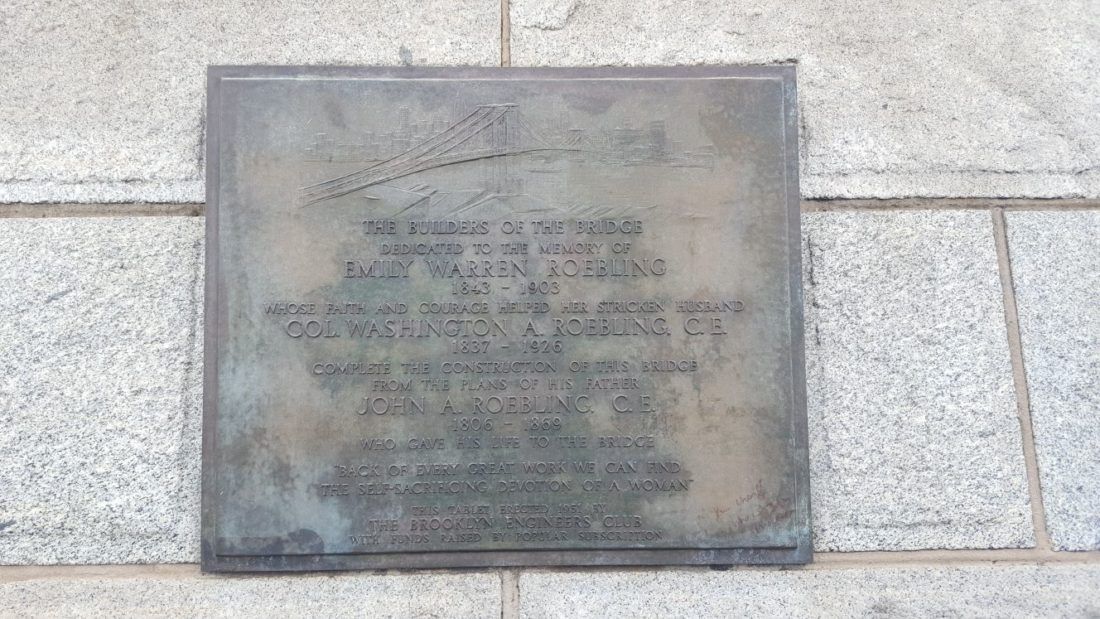Brooklyn Heights Corner Renamed to Honor Emily Warren Roebling


BROOKLYN HEIGHTS – A streetcorner will be named in honor of pioneering Brooklyn Heights resident for her role in completing one of the greatest pieces of Brooklyn iconography there is: the Brooklyn Bridge.
Emily Warren Roebling (1843-1903) will be honored by having the corner of Columbia Heights and Orange Street co-named after her this afternoon. Roebling lived nearby, at 110 Columbia Heights, with her husband Washington Roebling.
Washington Roebling served as the Chief Engineer for the construction of the Brooklyn Bridge, after his father, the bridge’s designer, John Roebling, passed away. Unfortunately, early in the construction, Washington Roebling developed caisson disease, or depressurization sickness, from the chambers used in the underwater construction of the bridge’s supports.

With her husband bedridden by the disease, Emily Warren Roebling stepped in to not only tend to his health, but to see the bridge through to completion. For fourteen years, Emily Warren Roebling oversaw the day-to-day construction of the bridge, learning about the engineering aspects of the project as she relayed information to her crippled husband.
At the completion of the project, Congressman Abram Hewitt, the future Mayor of New York, called the Brooklyn Bridge “…an everlasting monument to the sacrificing devotion of a woman and of her capacity for that higher education from which she has been too long disbarred.”
When the bridge opened in 1883, the woman who had helmed the project for nearly 14 years was the first to walk across its span. A plaque dedicated to Emily Warren Roebling, her husband Washington and his father John Roebling, stands on the crossing to this day:

Emily Warren Roebling spent her later life serving a variety of women’s social organizations and wrote the influential essay, “A Wife’s Disabilities,” in which she argued for greater rights for women and decried discrimination against women in society.
Though she wasn’t honored at her death in 1903, the New York Times wrote an obituary for her earlier this year, as part of their Overlooked series, which honored influential women not recognized by the Times at the time of their passing.



